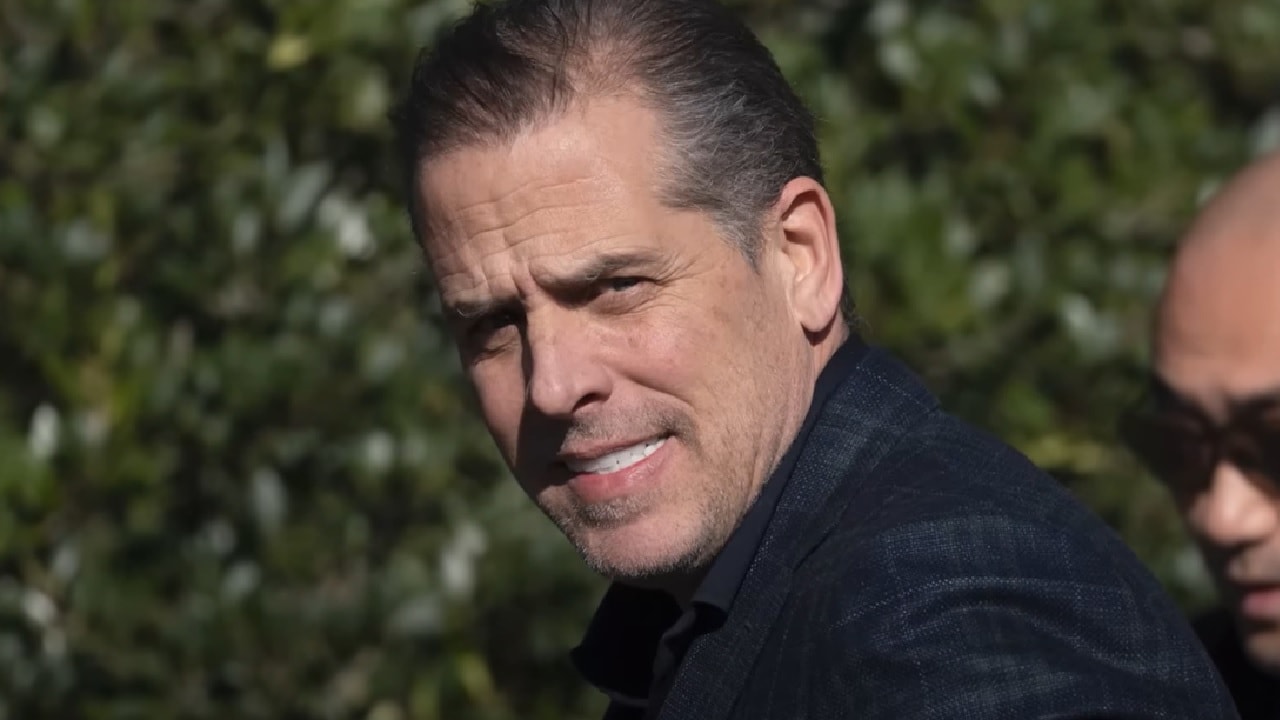In the midst of a political maelstrom surrounding Hunter Biden’s laptop contents, one issue that continues to raise eyebrows is the April 2015 dinner at Cafe Milano. Emails found on the laptop hinted at a private dinner that included Hunter Biden, his father, Joe Biden, and an executive from the Ukrainian energy company Burisma, which Hunter was associated with. The email from the executive expressed gratitude to Hunter for the chance to meet his father.
White House Denials Questioned
As the controversy over the Cafe Milano dinner brewed, the White House steadfastly denied any meeting between Joe Biden and the Ukrainian executive. Their denials intensified when a POLITICO article mentioned the dinner in October 2021. A White House spokesperson reiterated their stance, explicitly stating that no informal encounter took place.
In July, a twist emerged as a former business partner of Hunter Biden, Devon Archer, testified before the House Oversight Committee under penalty of perjury. Archer confirmed that Joe Biden, Hunter Biden, and others had indeed dined with the Ukrainian executive at Cafe Milano in April 2015. The White House, however, chose to focus on the absence of business discussions between the President and his son, rather than addressing the dinner controversy.
Joe Biden and his representatives have consistently defended him against criticism regarding his family’s business affairs by issuing blanket denials and disclaiming any involvement. Nonetheless, recent months have seen a steady stream of revelations that seem to contradict these denials.
A recent review of congressional testimony, court filings, and media reports by POLITICO raises questions about the statements made by Biden and his representatives.
Cafe Milano Controversy
The issue surrounding the Cafe Milano dinner has been a contentious one ever since Hunter Biden’s emails leaked three years ago. Emails show that Hunter Biden and his then-business partner, Devon Archer, arranged the dinner with a group of people. Notably, the guest list included a “Vadym,” at the time when they were closely working with Burisma’s executive, Vadym Pozharskyi.
Other emails hint at Joe Biden’s presence, with Hunter telling an attendee, “Dad will be there but keep that between us for now.” In a post-dinner email from Pozharskyi to Hunter, the executive thanked him for the opportunity to meet Joe Biden.
While attendees at the dinner confirmed Joe Biden’s presence, his representatives repeatedly denied any meeting with Pozharskyi. The sensitivity of this issue lies in claims, made by Trump’s allies during the last presidential campaign, that Joe Biden pressured Ukraine to fire a prosecutor who was investigating Burisma due to his son’s involvement.
The doubts surrounding the Cafe Milano dinner stem in part from Joe Biden’s skepticism about the authenticity of the emails describing the event. The New York Post began publishing these emails in October 2020, provided by Rudy Giuliani, a close ally of Donald Trump.
Chinese Business Ventures and Allegations
Joe Biden has also faced questions about Hunter’s business dealings outside of Ukraine. During the October 2020 debate, he was asked about the appropriateness of Hunter’s work in China and for Burisma during his vice presidency. Biden denied that his son profited from China, a claim that was contradicted by records of payments from a Chinese energy firm received after his father’s vice presidency.
Profiting from the Biden Name
Joe Biden has repeatedly assured that his family did not profit from their association with him as a powerful public official. However, allegations have been made, particularly by Senator Ron Johnson, that his relatives have profited off the Biden name, which were examined in a 2020 report by Senate Republicans.
In conclusion, recent revelations have raised doubts about several statements made by Joe Biden and his representatives, particularly concerning meetings and business dealings related to his son, Hunter Biden. The controversies and conflicting reports continue to be scrutinized by the public and in legal investigations, adding complexity to a narrative that has persisted for several years. The authenticity of Hunter Biden’s laptop contents and their implications remain subjects of debate and investigation.
‘Stinks of a Cover Up’
Adam Bruton, a Senior Researcher at the London-based intelligence firm Winter Circle Ltd, told 19FortyFive: ”The thing is that with these sorts of things, especially with how hyper partisan Congress is, unless you had a video tape of Biden saying ‘Mr Zelensky, wire me $1 million dollars to my Swiss bank account for my son or I will personally supply Putin with nuclear weapons’, he’s not getting impeached or facing responsibility for any alleged crimes
“But whether or not he actually did anything wrong here is immaterial too. It’s the perception that matters, and the perception stinks of a coverup.
“Biden saying he never met Pozharskiy formally or informally might, technically speaking, be true. If his son hosted a big party at a dinner, Biden turned up and mingled with his friends and he never chatted with Pozharskiy, it’s hard to define that as a meeting.
“But with how unequivocal his denial was, it implied he’d never been within 100 yards of the man.
“And with the added context of the situation around Hunter and his and other Biden family members cashing in on the family name for influence and power, and the fact specifically Hunter’s work with Burisma is an obvious sinecure, whether it was used to try and buy influence or not, means it stinks.
“More broadly this is going to make Biden evermore unpopular and difficult to present as a Gerald Ford style ‘healing president’. Independents, who are uniquely attuned to populist appeals against the Swamp of DC, will react very poorly to this.
“Previous Hunter Biden scandals come across more as tabloid tittle tattle, but if stories like this continue to emerge, it will be more and more difficult for the President to ignore.
Georgia Gilholy is a journalist based in the United Kingdom who has been published in Newsweek, The Times of Israel, and the Spectator. Gilholy writes about international politics, culture, and education.

